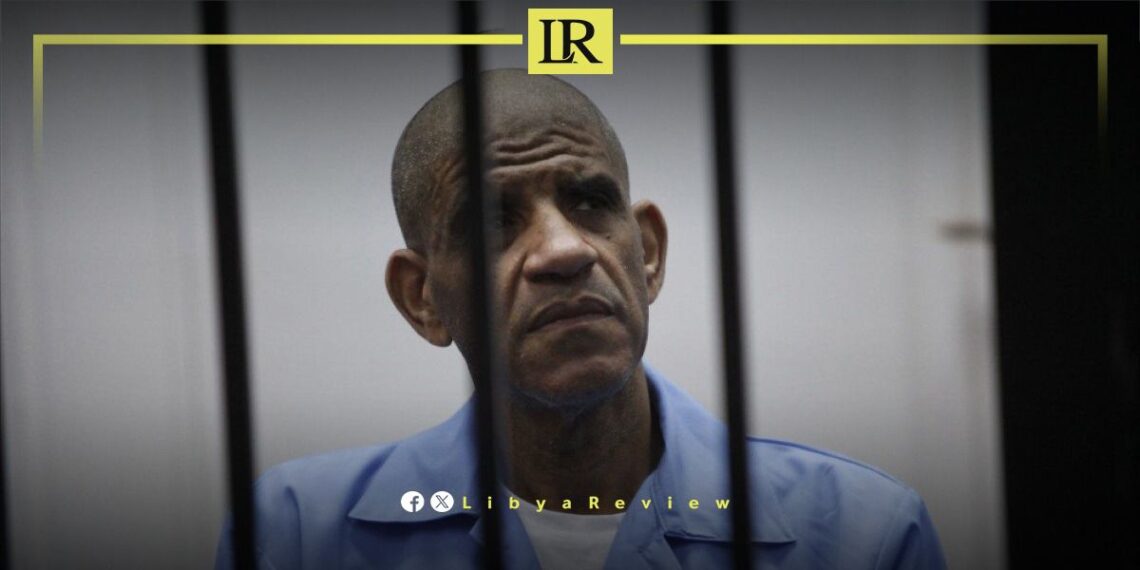On Sunday, Libyan authorities decided to postpone the trial of Abdullah Al-Senussi, former intelligence chief under Muammar Gaddafi, to December 1. This trial is linked to the 1996 Abu Salim prison massacre, one of the most infamous incidents of the Gaddafi era, in which an estimated 1,200 prisoners were reportedly killed during a violent crackdown.
The decision to postpone was announced by legal advisor Mustafa Al-Majdoub, who also noted that Al-Senussi, along with other co-defendants, appeared in the latest session remotely via satellite.
The judge granted Al-Senussi’s request to consult with his legal team and further allowed him to request the presence of all 86 defendants in the case. Most of these defendants currently reside outside Libya, with only four detained within the country.
The Abu Salim prison massacre, which took place in June 1996, remains a painful and highly significant chapter in Libya’s recent history. The massacre occurred after inmates, many of whom were political prisoners or opposition figures, protested the harsh conditions within the facility.
Al-Senussi, a powerful figure and Gaddafi’s close confidant, allegedly ordered security forces to suppress the uprising, resulting in the mass killing of detainees. The families of the victims and human rights organizations have long sought justice, accusing the Gaddafi regime and Al-Senussi himself of orchestrating the attack.
Following the 2011 Libyan uprising that brought down the Gaddafi government, Al-Senussi was captured in Mauritania and later extradited to Libya. He now faces numerous charges related to alleged war crimes, human rights abuses, and the events of the Abu Salim massacre. For many Libyans, his trial is seen as a test of Libya’s commitment to addressing the dark legacy of the Gaddafi regime.
Bringing former officials to justice in Libya has been fraught with difficulties. The country remains divided between rival governments, with the Tripoli-based Government of National Unity (GNU) and the rival administration in the east. Ongoing security issues, local political dynamics, and protection by militias have further hampered efforts to prosecute former regime members.


